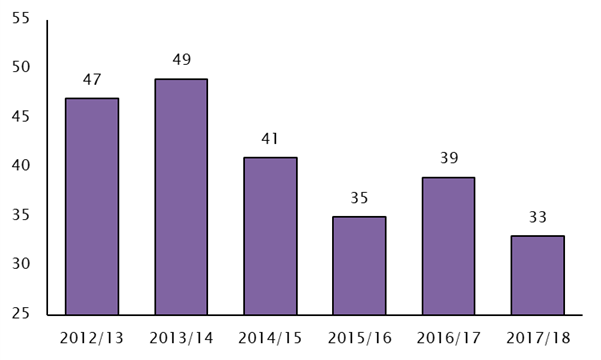Travel agencies are increasingly diversifying and moving away from ‘plain vanilla’ package holidays to more bespoke products
Travel agencies are now benefiting from British people taking more holidays than at any time since 2011,* as the economy has now emerged from the financial crisis.
The internet revolution of the last two decades has thinned out the less financially stable businesses, leaving those whose business models are better insulated against the threat of consumers buying DIY holidays. There are a number of agencies successfully operating in niche interest holidays and specialised trips where the knowledge and levels of services offered is highly valued by the customer. Examples include:
- Bespoke luxury tours that involve a high level of local concierge service
- Activity or extreme holidays such as:
- Cycle tours across the United States of America, with separate transportation of luggage and accommodation arranged along the route
- Guided treks through the Himalayan mountains with meals and specialized accommodation
Despite the fall in annual insolvencies, the market for travel agencies is still challenging and inherently uncertain. Increased competition and new technology platforms, particularly from the likes of Skyscanner and Airbnb, continue to make it easier for regular holidaymakers to ‘self-organise’ their travel without the need for an agent.
Corporate customers are still a key market for travel agencies who are more likely to outsource their business travel arrangements.
Chris Marsden, Restructuring & Insolvency Partner at Moore, says: “Travel agencies are performing better than they have been in recent years. New technology platforms and the evolving expectations of travellers have revolutionised the way the sector works.
“More travellers, especially from the younger generation, increasingly want an ‘experience’ rather than just a holiday – that gives travel agents and tour operators a real opportunity.
“It is harder to piece together those more complex, once-in-a-lifetime holidays from the internet, and that is where travel agents can still compete really well. The successful travel operators are those that have moved away from standard package holidays to more boutique and bespoke products.
“High-quality customer services is one of the keys to success in the market alongside the adoption and effective use of technology. However, travel agencies are also often able to offer better rates and upgrades than those that can be found online, as they are likely to have a relationship with their suppliers which allows them to negotiate prices.
“The market is both challenging and continually evolving, and agencies must fight to stay relevant against online-only competitors. Building customer loyalty by creating a bespoke experience through knowledgeable staff face to face is of paramount importance.”
*Association of British Travel Agents - Travel Trends Report 2018
Travel agency insolvencies fall 30% in five years
